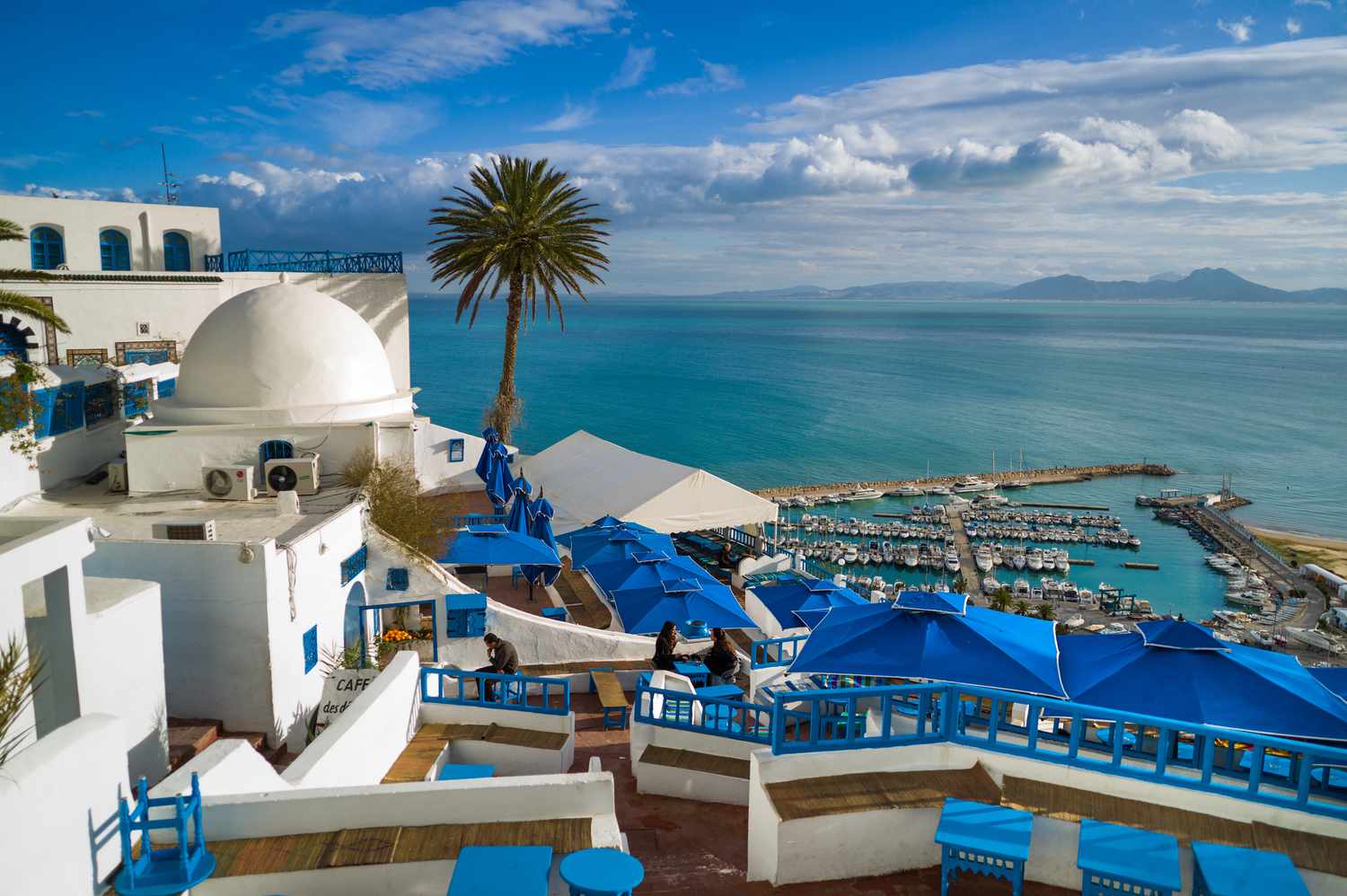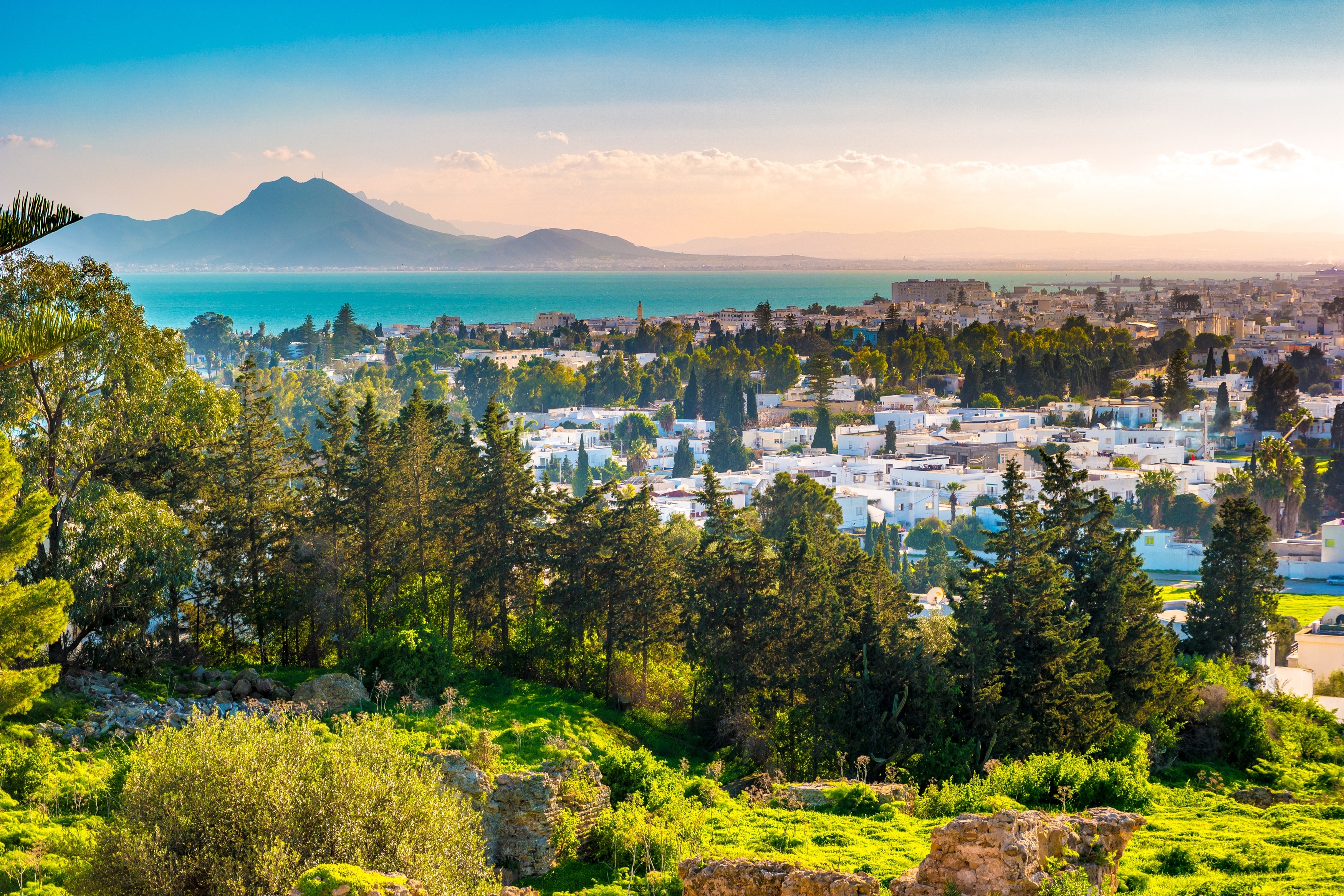



Tunis is the sprawling capital of Tunisia, a country in North Africa. It sits along Lake Tunis, just inland from the Mediterranean Sea’s Gulf of Tunis. It’s home to a centuries-old medina and the Bardo, an archaeology museum where celebrated Roman mosaics are displayed in a 15th-century palace complex. The parklike ruins of ancient Carthage sit in the city’s northern suburbs.
Spring (March–May) and Autumn (September–November) are ideal.
Mild temperatures (15–25°C / 59–77°F)
Fewer tourists, blooming nature
Avoid: July–August (very hot and crowded)
By Air:
Fly into Tunis-Carthage International Airport (TUN)
Direct flights from major European cities (e.g., Paris, Rome, Frankfurt)
By Sea:
Ferries from Italy (Palermo, Genoa)
By Land:
Buses from Algeria and Libya (border permitting, check advisories)
Medina of Tunis – UNESCO World Heritage Site, ancient souks, mosques
Bardo National Museum – Incredible Roman mosaics, archaeological gems
Carthage Ruins – Ancient Punic and Roman city ruins by the sea
Sidi Bou Said – Charming blue-and-white coastal village
Zitouna Mosque – One of the oldest mosques in the Islamic world
Habib Bourguiba Avenue – Lively boulevard with colonial architecture
Wander the narrow alleys of the Medina
Watch sunset over Carthage from Byrsa Hill
Sip mint tea at Café des Délices in Sidi Bou Said
Take a day trip to Dougga or El Jem
Shop for carpets, perfumes, and ceramics in souks
Relax at a traditional hammam (bathhouse)
Luxury:
La Villa Bleue (Sidi Bou Said)
Dar El Jeld Hotel & Spa (Medina)
Mid-range:
Hotel Carlton (central, near Bourguiba Avenue)
Dar Traki Medina de Tunis (charming boutique)
Budget:
Youth Hostel Medina
Hotel Metropole Résidence
Must-try Dishes:
Couscous, Brik (fried pastry), Ojja (spicy egg dish), Lablabi (chickpea soup)
Top Restaurants:
Dar El Jeld – Gourmet Tunisian cuisine in an elegant setting
Chez Slah – Famous seafood and grilled meats
El Ali – Great view of the Medina with traditional menu
Le Golfe – Upscale Mediterranean with a sea view
A blend of Arab, Berber, French, and Mediterranean influences
Predominantly Muslim with tolerant attitudes, especially in urban areas
Arabic and French are widely spoken
Tunisians are known for their hospitality and strong coffee culture
Dress modestly, especially in the Medina or mosques
Fridays are holy days; many businesses close for prayers